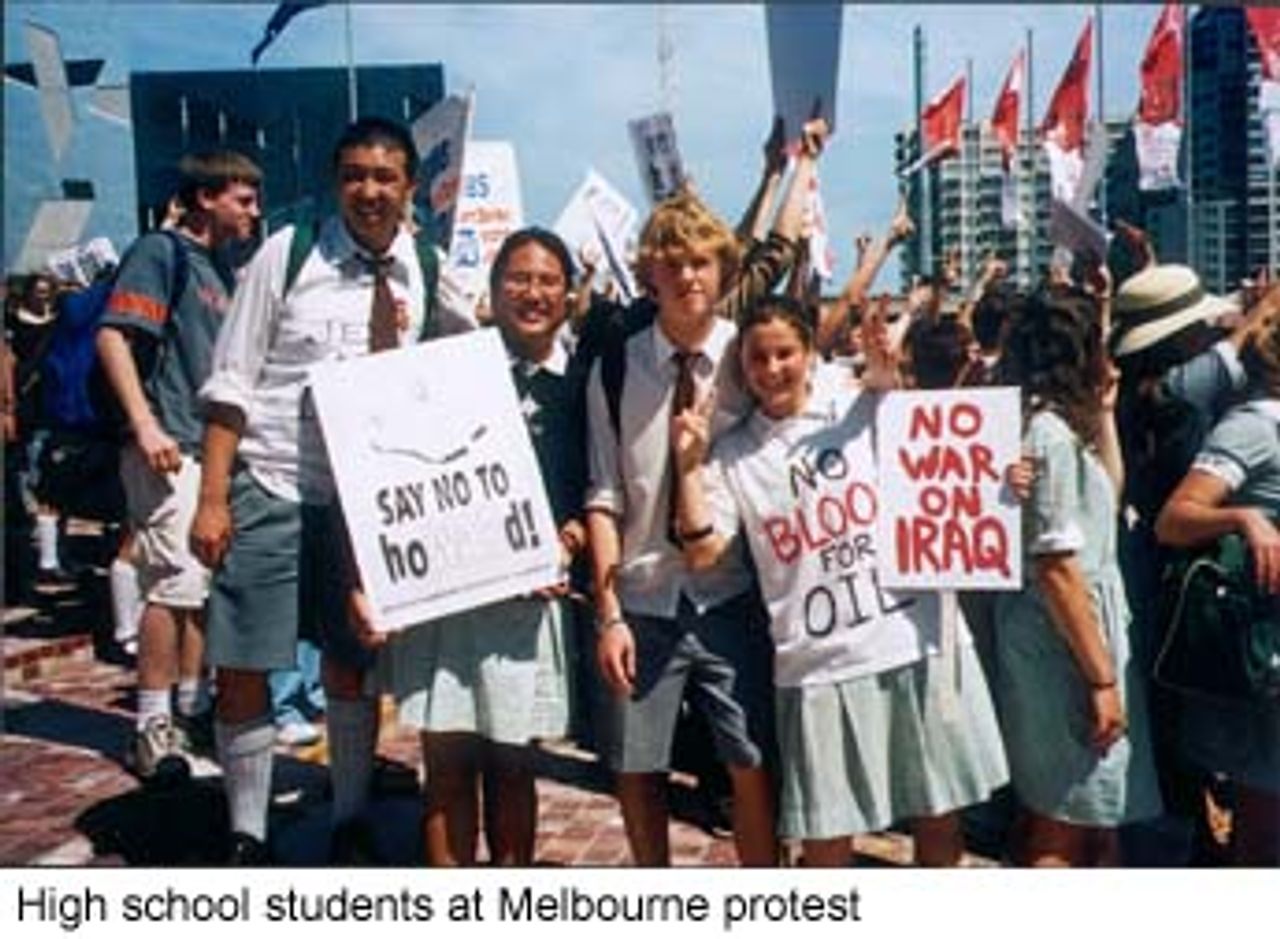More than 200,000 people converged on the centre of Melbourne on Friday evening, blocking peak hour traffic and taking the media and police completely by surprise. The city, the capital of the state of Victoria, has a population of over three million, including a large concentration of industrial workers.
Workers, young people, families, university and secondary students jammed into city streets until it was impossible to move. Earlier in the day, 1,000 secondary school students had gone on strike, including students from private schools, Islamic schools and inner suburban high schools. For the main march, local peace groups arrived from provincial cities and towns around the state.

The slogans reflected a determined opposition to the war: “No war for Oil”, “Don’t Mention the Civilians”, “Bush bad for the world”, “Lies, Bribes and Genocide” and “Worldwide strike, no war on Iraq”. As people realised the extent of the crowd, the carnival atmosphere intensified. An enormous roar of approval met the announcement that this was the first of the weekend’s rallies to take place internationally.
The Victorian Peace Network, an umbrella group of political parties, church organisations and trade unions organised the rally. All the speakers on the platform promoted the illusion that war could be halted through official channels: in the UN or via pressure from Germany and France.
Greens Senator Bob Brown won enthusiastic applause when he connected the drive to war with social distress worldwide. “For a fraction of the cost of this unwarranted war, the money could mean all the starving people of the world would be nourished, all the children of the world would go to school, everyone would have water and sanitation.”
But Brown’s speech was laced with appeals to the Australian government of Prime Minister John Howard to accept the proposals of the French and German governments for UN troops to move into Iraq. He gave credence to US claims that its planned war is about clearing Iraq of “weapons of mass destruction,” declaring: “Mr Howard, act on the no-war option of disarming Saddam Hussein.” Brown did not utter the word “oil” or mention broader US ambitions.
Former rock singer Peter Garrett, now president of the Australian Conservation Foundation, did not oppose war outright but appealed for more time “for the UN processes to reach their full conclusion”.
Socialist Equality Party supporters distributed 9,000 copies of the WSWS Editorial Board statement and other literature and spoke to hundreds of young people and workers.
Jessy Khera, a young financial analyst, said he had been reading the WSWS for the past year. “When I talk with other people and we discuss the pro-war propaganda in the mass media, many of us have turned to the Internet instead. A lot of people have mentioned to me that they read the WSWS as an alternative. It is getting known as a reliable alternative and the quality of the writing and the historical perspective are the reason for that.”
Xavier Mercader, a senior student from University High School said: “I came here to support the people of Iraq, and show my opposition to the US policy against them. The Bush administration is just proceeding ahead, totally gung-ho, despite the fact that there is so much worldwide and US opposition to what is going on.”
“It is increasingly well-known that the US supports this and that regime throughout the world to suit their own immediate interests. During the Soviet invasion of Afghanistan, the US supported the Mujahadeen and referred to them as freedom fighters. Then the US supported the Taliban—now they have demonised them, because the US has strategic interests in that area of the world.”
